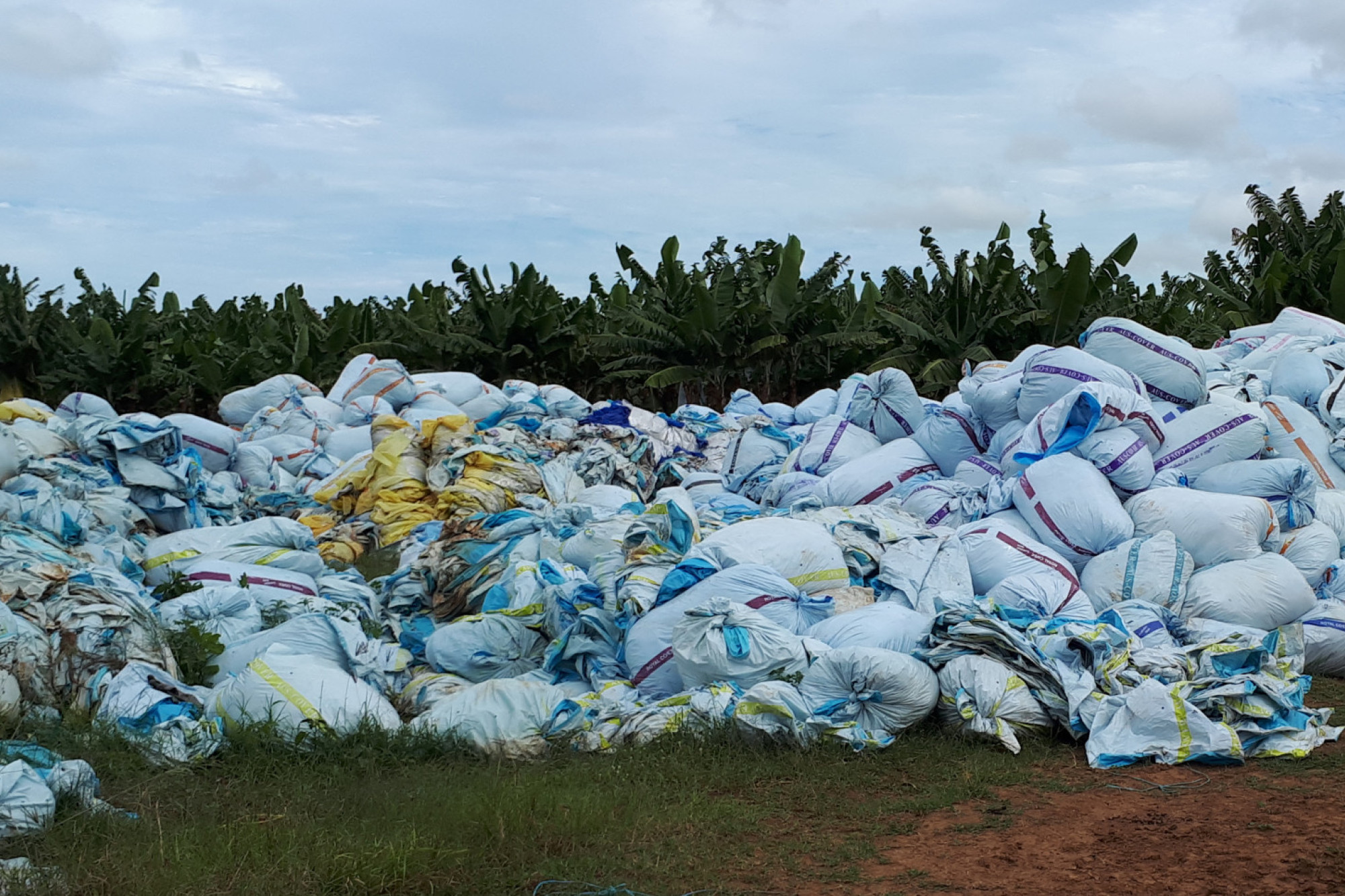Business
20 November, 2020
A solution to plastics in our environment
A Far North Queensland uncle and his nephew are on the cusp of revolutionising how farms dispose of their plastic waste with their world first thermoplastic melting technology.

Recycling innovator Michael Ritchie of Ritchie’s Plastic in Silkwood and nephew, molecular scientist, Dr William Ritchie have invented a recycling plant which quickly and cost-effectively repurposes agricultural thermoplastics, saving them from landfill.
Michael Ritchie said the invention will translate into enormous cost benefits to farmers as it won’t cost them anything, other than the cost of their transport, to dispose of their thermoplastics.
“Banana bunch covers are an example,” Mr Ritchie said. “It doesn’t cost them anything if they bring their banana bunch covers into the factory and they’re reasonably clean we can accept them.
“Some farmers are paying $12,000 to $15,000 a month to get the stuff taken off their farms so the cost to farmers is astronomical and if we can find a pathway for them to save money and we can also add that waste to a value-added product then everyone’s a winner.”
The machine, called the R-tec Melter, instantly melts down almost any form agricultural plastic waste in its post-consumer state, without the need for pre-processing.
This includes banana bunch covers, bags, wrap, netting, pot plants and more.
The melted product will then be repurposed to make a range of recyclable products such as car bump stops, fence plinths, house stumps, pavers and more.
The duo say the reduced processing and melting costs will also translate into costs savings on these products for consumers.
Principle inventor Dr William Ritchie anticipates the company will be able to reduce the cost of equivalent recycled products made from their melt by up to 50 percent.
“That’s probably the key point around all of this, it’s cost competitive,” Dr Ritchie said. “The resulting cost benefit will be passed onto the consumer at the product purchasing point.”
While the machine will be lightweight enough to be portable, it will also be large enough to process bulky feedstocks such as banana bunch cover bales.
“One of the design options for this machine is that it accepts a bale and all you would need to do is load the bale into the machine and it would melt the entire bale,” Dr Ritchie said.
“It literally is going straight in and it melts it down, there’s not a lot else that happens.”
Dr Ritchie said due to the limitations on the export of post-consumer waste, one of the most exciting aspects of this machine was that it effectively eliminated the need for it to go to landfill.
“Landfills are currently under a lot of pressure because there’s not a recycling and structural solution in place that is of scale and cost competitive,” he said.
While the company has embarked on an engineering pathway, funding sources were still needed to aid the cost of commercialisation.
To date a small-scale prototype has been completed with a large production version pending investment.


